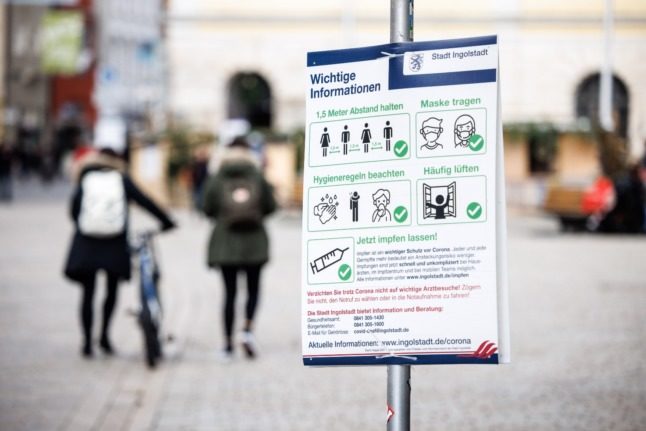Germany registered an incidence rate of 201.1 new cases per 100,000 people over the past seven days, the Robert Koch Institute (RKI) said, surpassing the previous record of 197.6 reached on December 22nd, 2020.
The surge in cases, blamed on the nation’s relatively low vaccination rate, has prompted widespread alarm in recent weeks as hospital beds fill up rapidly.
Underlining the urgency, the three parties striving to form Germany’s next coalition government following September’s general election presented a raft of pandemic-fighting proposals – despite not officially being in power yet.
The Social Democrats, the Greens and the liberal FDP released draft legislation that will give Germany’s 16 regional states a legal framework to tame the fourth wave of the pandemic.
The goal is “to protect as many people as possible during the autumn and winter months,” said Dirk Wiese, deputy leader of the Social Democrats’ parliamentary group.
The plan includes the possibility to exclude unvaccinated people from some indoor events, stricter prevention measures in the workplace, and the option of requiring PCR tests instead of rapid tests.
The incoming coalition partners also want to reintroduce free coronavirus testing, after it was dropped last month as it failed to spur enough unvaccinated people to get the jab.
The proposals will be discussed by the lower house of parliament this week and are slated to take effect from the end of November.
READ ALSO: Will Germany bring back free rapid Covid tests amid infection surge?
Curbs on unvaccinated
The three parties which aim to have a new government installed next month – with Olaf Scholz replacing Angela Merkel as chancellor – have however ruled out mandatory jabs or nationwide lockdowns.
The coronavirus vaccination rate in the EU’s most populous country has stagnated at under 70 percent, despite official pleas for more citizens to get the jab.
The eastern state of Saxony, where the incidence rate is more than twice the national average at 491.3, on Monday introduced the nation’s toughest restrictions yet for unvaccinated people.
READ ALSO: German states order tougher Covid rules to fight fourth wave
Access to indoor dining and other indoor events will be limited to those who are fully vaccinated or can show proof of recovery, a system known as “2G” in Germany.
Only children as well as those who cannot receive jabs for medical reasons will be exempt.
Several other states including Baden-Württemberg, Bavaria and Hesse are also adopting tougher curbs.
Germans are also closely watching Austria, where the start of 2G rules has lled to queues outside vaccination centres.



 Please whitelist us to continue reading.
Please whitelist us to continue reading.
Member comments